PASSAGES: DUMBING DOWN EDUCATION IN 1957
Excerpts from BENDING THE TWIG: The Revolution in Education and Its Effect on Our Children by Augustin G. Rudd (1957)
From the frontispiece:
“‘Tis education forms the common mind
Just as the twig is bent the tree’s inclined”
**Alexander Pope
This book resonates well with my previous post “DEPT OF EDJUCAYSHIN.” That post, citing a book written in 1994, mentions a significant occurrence in 1966. We now go back another decade for this book, wherein the author decries the state of US education, with similar-sounding complaints – the inability of students to read and write and use mathematics.
The hardcover book is about 300 pages, with index, and my excerpts total about 22 pages ─ saving you a lot of reading! Kind of like pulling the naughty bits from Lady Chatterley’s Lover, only more boring.
However, dear friend, you and I know that social engineering stuff is nearly always boring, and obscured by the bread and circuses of big-league sports, media stars, and fake or exaggerated news items.
Somebody from the good-guy side has to read this material, in order to be armed with proper understanding, so I applaud your attention. I hope you will be as richly rewarded as I was.
The excerpts each stand on their own in terms of comprehension and import. You can skip around or leave and revisit as you wish. My comments will usually come after the referenced passage. The numbers refer to the physical book pages, for my own guidance. Most pictures are simply images from 1957. I have used bold italics to emphasize key points, on occasion. Since the author’s name is Rudd, and a prominent player in the book is named Rugg, I will refer to the author as AUTHOR, for clarity.
Let’s get to it!
Subscribing to LIAR$$WORLD is free, hoping that you will pay-subscribe to other Substackers who have more expenses and post more often.
6
The New Educationists frankly proclaim that their aim is not to turn out better citizens to live under the present social order; their sights are set upon the building of a new social order and the schools under their direction are to spearhead the job. For generations the goal was to teach youth fundamental knowledge and how to use it as a valuable tool. In short, how to think and to reason. The New Educators are more concerned with what they should think. In the process, they have perverted the very purpose of a great American institution. They have introduced into our schools a system of indoctrination in which teachers are expected to crusade for social aims as the primary purpose of education.
This is a bit of a mind bender. AUTHOR states that traditional education taught young adults how to think, i.e. how to function in society. This was accomplished by rigorous study and drill. In our current century, edu-cranks have decided that memorizing facts is boring and limiting to creativity, and that teachers should focus on HOTS (higher order thinking skills) which teach youngsters how to think – an opposite philosophy. Nonsense ─ everyone knows how to think – it’s called your brain. What AUTHOR means is like your brain going to the gym to tone, to bulk up. The HOTS crowd are just avoiding rigor in order to create manipulable dumbasses.
6-7
Fortunately, an increasing number of Americans are awakening. For instance, Senator Ralph E. Flanders of Vermont, champion of many liberal causes, recently declared that “our educational system is a shambles.” In the St. Paul (Minn.) Wanderer, December 20, 1956, he blamed Progressive Education and “professors of a pseudo-science of education” for this nationwide condition wherein “schooling must be ‘student-based’ rather than ‘subject based.’...In other words, our children are being trained to live in ant hills.” The pitiful fruits of the New Education now are apparent—including elementary school children who cannot read, high school graduates who cannot spell, maturing upper-class pupils who cannot perform simple operations of arithmetic. Parents now recognize that something evil has happened to their schools. They realize that nothing can stop this evil except themselves and their aroused interest. In hundreds of communities, which were once submissive to the New Education, school boards, parents, and sound, dedicated schoolmen are counterattacking.
Holy crap ─ this is 69 years ago and sounds like only yesterday! Crazy, man, crazy.
(Please note: the term “liberal” had a different meaning back then:
The core principles of the Great American Experiment were Reason & Logic, Natural Rights, Consent of the Governed, Republicanism, Religious Toleration, Scientific Progress, Skepticism of Authority, and Individualism – and is properly termed Classical Liberalism.
In the 20th century "liberal" came to mean support for government intervention to promote social justice and economic opportunity, not just individual freedoms ─ as contrasted with its former principles of minimal government and maximum personal liberty.
“Libertarianism,” today, most resembles the core characteristics of Classical Liberalism, if one is to rely upon labels. The AUTHOR-aligned voices heard in this book are committed to Classical Liberalism).
8
It is characteristic of these crusading New Educationists that they often fight foul. Brave and patriotic teachers in scores of our communities, who have had the stamina to stand up against them, have suffered loss of job or loss of promotion as the price. They have had no American Civil Liberties Union to leap to their defense with the cry of “academic freedom.” Most of them have been unpublicized and unknown. Parents and laymen who have challenged the New Education also have been smeared and misrepresented. Some of the major magazines and newspapers have been among the smearers. Despite the brickbats, the defenders of the American public school—the Essentialists—maintained their fight.
They have been buoyed up in their determination by the realization that the heart of this great institution still is sound; it is only the head which has been infected. The majority of our teachers and school administrators are patriotic men and women, dedicated to their life work of imparting to our youth a sound basic education. Many of them have been powerless to act under the compulsions of the educational hierarchy. With most of the leaders of teachers’ associations and big names in the teachers’ colleges and the foundations lined up behind the New Educationists, the individual teacher has been virtually immobilized. Thousands have become unwilling conformists.
What must have seemed utterly confusing at the time is clear to us in the present day: THE CABAL AT WORK. We now know that strange societal changes are indicative of the ancient bloodline families’ machinations. Why would anyone want to destroy successful education? To weaken. The cabal always seek to weaken, in order to dominate. The above-mentioned “academic freedom” greets us today as “trans rights.” The cabal utilize the various media and place their lieutenants and minions in key positions of power and influence. We only need to recall the vast ranks of the pro-maskers during Covid to see the dynamic.
Note the term “Essentialist,” which is to be contrasted with “Progressive” in this book.
17 18
“The progressivists began by assuming that the older education had been a general failure” wrote Neil G. McCluskey, in America, December 1, 1956. “They told the world that earlier teachers were a breed of ill-equipped, overly bookish tyrants. Hence, they argued for progressive teachers colleges, life-adjustment programs and the child-centered classroom.” And then they abandoned good, crisp English for a “mess of emotive pedagoguese,” by which they flatteringly described their program as “life-related,” “gripping,” “dynamic,” “forward-looking,” “growth-oriented,” and, of course, “new.” If this warmed the hearts of the pedagogues, it left the parents cold and confused.
To some, Progressive Education means new methods of instruction, including anything from movable desks to the use of audio-visual aids. Such physical aids are to be welcomed. Since the end of World War I, many important advances have been made in the organization and administration of education, taking the form of better financial support and improved tools and facilities. Most innovations have been misleadingly claimed by Progressivists as a product of the New Education.
To others Progressive Education connotes “new” concepts or philosophies, although, as we shall see, most of them are as old as Plato and Democritus. To many, it stands for a revolutionary change in the very purpose of public education—a shift from the educational objective of imparting factual knowledge to the political objective of indoctrinating the child for the remaking of society—to bring about a new social order. It is probable, however, that the average person, absorbed in his own affairs and susceptible to slogans, thinks of Progressive Education as a new method whereby a child “learns by doing” or the “whole child” is educated. These and other Dewey theories are implemented in the Activity Program which is the center of the Progressive system. Later we shall examine some of these philosophies which conflict with time-tested social, political and economic standards.
AUTHOR then points out a simple trick. The moniker “progressive education” is a linguistic trap. If you are opposed to it, you are automatically opposed to PROGRESS and EDUCATION. What manner of brute would be opposed to a “forward looking” concern for the “whole child?” Here is the same tactic, from the Covid era:
21-22
TO IMPLEMENT THE PLAN
In implementing this program, three main policies have been established and generally accepted by the leading Progressivists and their organizations—the Progressive Education Association, the John Dewey Society and the left-wing element in the National Education Association:
1. Opposition to methods of education using sequential curricula. In the place of this time-tested method, the Activity School is advocated as the only sound method of teaching.
2. Opposition to efforts of the traditional school toward inculcating in the child even the moral values long regarded as fundamental to character training; and denial of the value of spiritual or religious influence on youth.
3. Approval of emphasis on feelings or emotions at the expense of knowledge and judgment.
Number 3 is now called “Social-Emotional Learning” (SEL) and is actually designed to turn all children into psychiatric patients!
Number 2 is the decades long war to portray Christianity as merely a quaint form of hate speech.
What is number 3? ─ “Activity School (or Program).” Keep in mind that John Taylor Gatto asserts that one of the purposes of our K-12 school system is to keep young adults out of the labor force for reasons of competition. With proper pedagogy, a child could be prepared for adult life after what we call the 9th grade. So, they have to fill that time up with something. As to the specific moniker, here’s the best info I could find on the Web:
22-23
DEWEY ON RELIGION
Dewey’s materialistic philosophy, and particularly his concept of man as a biological organism, inevitably leads him to a primitive explanation of religion. He notes man’s grim struggle for survival and regards religion as one of the things “cherished as a means of encompassing safety.” Dewey wrote:
“...[man] being unable to cope with the world in which he lived, he sought some way to come to terms with the universe as a whole. Religion was in its origin an expression of this endeavor...As a drowning man is said to grasp at a straw, so men who lacked the instruments and skills developed in later days snatched at whatever, by any stretch of imagination, could be regarded as a source of help in time of trouble ... In such an atmosphere primitive religion was born and fostered.”
In this viewpoint Dewey is, in fact, only a step removed from Karl Marx, who said:
“Religion is the sighing of a creature oppressed by misfortune, it is the “soul” of the world that has no heart, as it is the intelligence of an unintelligent epoch. It is the opium of the people.”
Surely there is nothing “new” in this doctrine of historic materialism. For centuries, agnostics and atheists have sought to eliminate religion as a vital force in the life of man. For the past century it has been damned vociferously by the Marxists of various kinds. But the efforts have not succeeded for very sound reasons. Religion serves an inherent need of man for an explanation of life and its meaning. Philosophy alone cannot satisfy this need. Nothing in science nor in the best thought of the ages can assuage the longing in man to seek the truth of his existence, or what is known as the ultimate reality.
Religion is a crutch … hmmm … where have I hear that before … oh yeah, my whole life, courtesy of an endless chain of assholes. AUTHOR’S words ending this section are elegant indeed.
23
“SOFT vs. HARD” PROGRESSIVES
To understand the relationship of the original Progressivism and the current New Education, it is important that we do not lean too heavily on the doctrines of Dewey. It is true that he was the founder of the movement, but he had many pseudo-disciples who saw in Deweyism the chance to ride to glory in their own chariots. Becoming extremely vocal and insistent, their clamor forced a development within the cult of great importance, since it altered the nature of the Progressive movement by introducing new purposes and policies. Dewey, incidentally, was not too happy with some of the extremists who followed his banner.
This is humorous and shows how the cabal use any person or thing to their own ends, without a blush. It reminds me of a favorite quote:
“I’m glad I am Jung, and not a Jungian.”
**Carl Jung
(continue):
Prior to 1932, the “new” pedagogy had been largely in the hands of Dewey and his true disciples, whose primary interest lay in the functions and philosophies of the educational process ─ the methodology rather than the ideology in education. “These dreamers...,” said John C. Almack, Professor of Education, Stanford University, “took primitive man for their ideal and pattern as they envisioned him in their steam-heated flats in the cities of the Eastern seaboard. Because of their tendency to visionary idealism, they may be termed ‘soft progressives.’ ... They were shoved out of the seats of control in the years immediately following the depression by comrades who believed in and practiced direct action. These more or less hard-headed adherents to alien methods had received some elementary schooling in the theories of Karl Marx, founder of Communism, and of his successors. Because of their faith in action and struggle, they may be called ‘hard’ progressives ...” In short, the Deweyite efforts to improve the methods of teaching were turned into a political movement in which the content of the curriculum became the goal of pedagogues’ intent on remaking society.
Cooptation by “the Communists.” Uh-oh. And who are the Communists? THE CABAL. Karl Marx had close ties to the bloodline families (link). “Direct action” describes communist operatives’ behavior well, since their ideology is repugnant to normal people.
24
But whether they were “hard” or “soft” Progressives was largely a family affair amongst pedagogues. They belonged to the same teachers’ associations and generally maintained a united front against opposition. Of course, there were vigorous protests from able educators, many of whom are mentioned in these pages, who were unable to stem the tide against the leftist-liberal element, aided as it was by the support of national teachers’ organizations and several large foundations.
Again, top-down coercion. And the gigantic foundations have been meddlesome monsters ever since old man Rockefeller pioneered the dynamic.
25
The key to this program was the new social science course, replacing the teaching of history, civics and geography as separate subjects and subordinating other fundamental knowledge. This marked the turning point in the destinies of Progressive Education. Up to that time it had offered a few positive values, but when the “hard” Progressives took over, the effort to improve the methods of education were eclipsed by the politically-minded pedagogues. From that day on the movement called Progressive Education became radically different in character.
(and ─ related ─ from the very start of the book):
3
When he (AUTHOR) looked further, he discovered that the traditional school courses which had shaped the minds of generations of our citizens had been drastically altered or omitted. For instance, history, geography and civics had disappeared as separate subjects. In their place was a new and confusing omnibus course styled social science, which was to become the “core of the whole program.” The more the author examined the texts and the day-to-day lessons of this course, the more he realized that a whole set of new concepts and doctrines had been bootlegged into the school curriculum. Some of these concepts contradicted and condemned ideas which were held by the overwhelming majority of the American people. Even the main purpose of the public school had been changed.
Replacing history, civics, and geography with “social studies” … this is HUGE, and you need to keep it in mind. I've read about it many times and don't fully understand it. We must acknowledge that history is broadly tampered with, however, “social studies” is pretty much made from whole cloth, and it's basically social engineering ─ instructing the child or young adult as to how things should be at a society-wide level. I remember this class in high school – coma‑level boring – the closest I ever came to a Chinese Communist indoctrination session.
25 again
Dr. Arthur E. Bestor, who has been both a pupil and a teacher of the social studies courses, writes:
“The social studies program ... was an example of regressive education, because it pushed back to the infantile level again students who were already trained in systematic, analytical, critical thinking. This has happened on a tremendous scale in American education in recent years ... because experts in pedagogy have insisted on applying to the secondary school and even the college certain rules of thumb that worked successfully in the primary grades ... In doing so, the regressive educators have turned their backs upon all the great educational thinkers of past times. Not least, they have repudiated the original principles of progressive education itself.”
I don’t technically understand this, but I believe that Dr. Bestor does. One of the signature deformations of the populace after WW2 has been the infantilization of young adults. James Dean in the film East of Eden (1955) helped “invent” the teenager. Would you buy a used car from this person(?):
And by 1963 we had “The Surfin’ Bird” video by The Trashmen:
30
The Progressive policy of favoring courses of immediate rather than deferred value has loaded the curriculum with vocational training and so-called “aptitude for life” courses. In the broad scope of public education, certainly these practical programs merit consideration in relation to all other values and objectives. But Kilpatrick, Dewey and other leaders insist that these and other “social aims” should be the main purpose of education, and their will has prevailed. As a consequence, the curriculum has been drastically revised with the disastrous results noted in forthcoming chapters.
This relates to “tracks and strands” which are found in our high schools, along with an embryonic form of Lifelong Learning, both touched upon in my previous post. I’m only guessing, but I think AUTHOR means that the traditional form of education, which he is mourning the loss of, exposed ALL students to the distilled riches of western civilization ─ reading, writing, and mathematics, in addition to noble themes of civility and vigor and reverence and aspiration. Some will grasp all this better than others, but all are exposed. Don’t pigeonhole the late bloomer (that’s a double metaphor … anyone can understand what a metaphor is, not just the “smart” ones).
32
Fails to Utilize Human Experience
In an article in the San Francisco Examiner, October 13, 1942, deploring Progressive Education’s neglect of history, control and discipline, Dr. Almack said:
“Even under favorable conditions, it will take us a quarter of a century to restore American education to the level it held before the Progressive onslaught.
It is wrong not to utilize human experience to the fullest extent, not only to teach values and desirable practices but to expose failure, neglect and wrong motives …
The Progressive policy of deprecating our history and of putting it on the scrap heap has materially weakened national unity and broken the continuity of the social process …
The cult is also wrong in its play upon experience and activity as ways to education. All the hordes of ignorant and uneducated who have trod the earth stand forth in mute testimony to the fallacy that experience is enough to develop civilized and ethical men.”
Dear Reader, I have read this section many times and don’t fully understand it, but I know it’s important. This whole book is something like visiting an ancient culture in a time machine! For one, I think he means that learning history teaches the pitfalls of Man as well as the triumphs. It’s like the old joke about the young businessman asking the older successful one how he “got there”. Answer: “Good decisions.” Thence asked how he mastered this technique, the answer came, “Bad decisions.”
The last paragraph seems to imply that we must train the young as to the solid findings of “civilization”, i.e. the hard-won discoveries of how to manage large populations with endlessly diverse goals and styles of coping. The eternal slight of hand of the “left” is to declare such an approach to be anti‑freedom, when in fact it is in the orderly society where freedom can flourish.
29
Destroying the Fundamentals
Cautioning us against the dangers of destroying the fundamentals of traditional education evolved through centuries of trial and error, Albert Lynd states:
“Much of the writing and speaking on behalf of the New Education is done by persons who understand what is easy to understand, that Mr. Dewey has given them license to chop down something: the traditional curriculum and discipline. Chopping is an occupation many find agreeable; they are less clear about what they should do to replace what they are destroying.”
This is an eternal truism and tied to the adolescent mind. Radicalism and communism often appeal to the adolescent sensitivities, which many of us can possess throughout our lives.
In 1970, female country singer Lynn Anderson had a crossover international hit song which began with the lyric, “I beg your pardon, I never promised you a rose garden.” Why so successful? Because that’s Life in a nutshell.
Adolescents are famous for nitpicking the way things are and pie in the skying the way things should be. However, they typically fall short when it comes to proffering the mechanisms by which their ideal states will be instituted. That said, questioning the status quo by the young and by all is a root necessity of human existence.
33-34
PROGRESSIVE EDUCATION IN SOVIET RUSSIA
Few Americans realize that Progressive Education was given a thorough try-out in Soviet Russia. When the Bolsheviks under Lenin destroyed the Kerensky government in November, 1917, they believed that a similar revolution was imminent in other countries and they sought to expedite it by creating in Russia a Communist model for the world. They proceeded to inaugurate a series of drastic reforms and changes in the traditional life of the Russian people. A veritable orgy of change followed in all segments of their society—from education to marriage. Many of these “reforms” were not only unnecessary but proved to be harmful to the Communist cause.
Anything new or extreme was tried, provided it was a break with the traditional. The Communist leaders had heard of the Progressive Education system in America and in 1918 they imported its program almost intact. Lenin saw in it an opportunity to eliminate from Russian life religious faith, private property, family and parental authority. If they could destroy family life, the Bolsheviks would strike a death blow to in Russia and also set the world an example which they confidently hoped would hasten the day of their world revolution.
The Communists, however, overlooked one vital factor in a civilized society: the family is the most important influence in the training of a child. By using public education to destroy the foundations of the family, they also lost a cohesive unit and stabilizing force in any society. With respect and authority gone, the Soviet family lost the ability to discipline its youth, with the inevitable disastrous consequences.
As early as 1920, the results began to be apparent. Dr. Kapterev, a liberal educator of old Russia, wrote in the Educational Review: “Two great misfortunes have befallen Russian education. One is the establishment of the Common Activity School and the elimination of all serious work that followed in the wake of this reform, and the other is the elimination of discipline from the school.” The Soviet Progressive Educators shouted against the “reactionary Tzarist professor” who had dared to criticize the New Education.
Through the behaviorist influence in Progressive Education and its emphasis on stimuli and response, the faith of the Russian children in the principles of freedom was destroyed, but the sequel was a shock to the Kremlin. Once started, the undermining process could not be controlled and the Communists saw that the product of their new education, no longer potential capitalists, were now unsuited to any community life. Soon there were roving bands of homeless children all over Russia, without belief in God, family, country or any standards of ethics or morals. In their numerous programs designed to destroy the roots of a capitalist society, the revolutionists had sown the wind and reaped a whirlwind.
As the gravity of the condition became more evident, responsible Communist educators began to demand that an end be put to the debasement of the schools. When adolescents whose whole preliminary training had been obtained in the Soviet schools began to arrive before the examining committees of the higher institutions of learning, their appalling ignorance of the fundamentals of the sciences and letters became evident beyond all possibility of doubt or camouflage.
36
On August 25, 1932, the Central Executive Committee ordered the reorganization of the entire educational system in Russia. On December 9, 1932, local superintendents of schools received their orders from the Soviet Commissary for Public Instruction as follows:
“The first thing I wish to impress upon you...is to re-establish discipline in our schools...the Soviet school is characterized by weak discipline and even in places by the complete absence of all discipline....I know cases where the organization and maintenance of discipline is shoveled over to the student government...the teacher is assigned a passive role or even none at all.”
37
That marked the end of Soviet Russia’s fifteen-year experiment with Progressive Education. They returned this educational failure to America, whence it came, and to our starry-eyed Frontier Thinkers who were determined to foist it on the public schools of America ─ and did so.
This knocked me out of my chair – news to me! What a hoot.
When reading about communism, from the time of Lenin to that of Reagan’s Star Wars, we must see through the consistent blaming of the Russians and the Chinese. We must also dispense with ideology. No people ever wanted to be communist. In this era, substitute the term capitalism with freedom and communism with fascism. Sadly, we in the US have also been living with fascism ever since old man Rockefeller dominated the landscape (albeit a more palatable form of).
The forgivable outcry of communist meddling in the “free world's” affairs can simply be recalibrated as social engineering by the cabal, from our present-day vantage point.
37
While the realistic Soviet officials saw the evil consequence of the New Education and discarded it in time, our educational leadership embraced it with a fanatical zeal. So, during the same period that the schools of Russia have improved markedly in imparting the foundation knowledge so essential to the training of engineers, scientists and other skilled leaders in an atomic age, millions of our youths have found themselves seriously handicapped because their schools have failed to educate them properly on these important subjects.
The term “dumbasses” comes to mind …
63
… the American Education Fellowship’s policy statement, as reported in the New York Times, November 30, 1947:
1. The reconstruction of the economic system in the direction of greater social justice and stability; a system to be secured by whatever democratic planning and social controls experience shows to be necessary.
2. The establishment of a genuine world order, an order in which the national sovereignty is subordinated to world authority in crucial interests affecting peace and security ... an order which must be geared with the increasing socializations and public controls now developing in England, Sweden, New Zealand and certain other countries; ... an order in which “world citizenship” thus assumes at least equal status with national citizenship.
This was 78 years ago. The concepts are still with us, in the riots of 2020 and the WHO pandemic treaty of the same time.
I call your attention to the name of the above-quoted organization. Now read the following from earlier in the book:
28
Ever since the embattled parents began to protest violently against Progressive Education, the name “Progressive” has been a thorn in the sides of the leaders of this cult. They have squirmed and twisted in all directions to avoid use of it, but to little avail. Finally, in 1944 the Progressive Education Association officially changed its name to the American Education Fellowship; “Progressive” was perhaps too closely associated with cartoons of children terrorizing teacher, says Albert Lynd.
A worse fate of the adjective was its adoption by the Communists in one of the devious turns of their propaganda line during the thirties. Perhaps the most disconcerting blow of all is the fact that the Communists recently designated as “Progressives” the American prisoners of war in Korea who became Communists and refused to be repatriated! Now the Progressives prefer the use of the name “new” or “modern” education. But the word “Progressive” still hangs on and like the albatross of the Ancient Mariner, they cannot lose it.
We might quip at this point that a rose by any other name still stinks to high heaven! Name changing is a repeated maneuver of the world’s LIARS. For instance, if you are looking to avoid MSG in food labels, you also need to be wary of Hydrolyzed Vegetable Protein, Autolyzed Yeast, Yeast Extract, Soy Extracts, Protein Isolate, Textured Protein, Natural Flavors, Glutamic Acid, Sodium Caseinate, Calcium Caseinate, Gelatin, Umami Seasonings, Hydrolyzed Plant Protein, Hydrolyzed Oat Flour, Monopotassium Glutamate.
67
”There are huge obstacles in the path of those who would create a new climate of opinion in our communities. These obstacles reside in part in the powerful individuals and groups which control the economic system. But they lie even more deeply in the stereotyped loyalties and opinions of the public mind itself. Indeed, it is to the uprooting of ingrained concepts and motives that we must commit ourselves …”
**Harold Rugg, The Great Technology, (p. 188)
Here is our first mention of Rugg, a titan among edu-weenies.
The economic system he cites is simply the US as it existed at the time (1933).
The undesirable “loyalties and opinions” cited are deranged notions like love of family, love of country, and reverence toward God.
75
The Master Plan tells us that the indoctrination of the children is to be accomplished by means of the social science courses which Professor Rugg said would be the “very core of the entire program.” They eliminate time-honored history, geography, and civics as separate studies, but include parts of these subjects and other materials which give the author unlimited opportunity to “interpret” anything of social significance to suit his avowed purpose. In Time Magazine, of November 6, 1940, we learn that Rugg “undid the old packages (i.e. history, geography, etc.), and dumped all his information in one basket ─ social studies.” (p. 61)
We have already covered this. Very important. Mentioned again (81-82) soon below.
77-78
Professor Rugg is clearly a reformer, a new-world maker, before he is an educator. Where his system is used, children have little opportunity to learn the history of any country; certainly not the value of their great American heritage. The method used in the Rugg textbooks is extremely clever. The approach is one of stealth. With gentle language and a pedagogic smile, the child is led through the successive stages of indoctrination. So subtly is the material prepared that the average adult can scan it without being aware of its unfortunate influence on the youthful mind.
While the approach is devious and surreptitious, the method is fairly simple. There are four steps in this indoctrination:
> First, the child is taught the great principle of Change. Everything is in a constant state of change, and we must expect all institutions to be changed in the future, especially forms of government and social organizations.
> Second, the student is shown, by numerous examples of factual and fictitious evidence, that our present situation in this country is very unsatisfactory and that our system has worked badly.
> Third, the child is disillusioned of any preconceived ideas that America has a glorious history or that the Founding Fathers were men of good intent. Rather, it is shown that our form of society was designed to benefit only the minority of well-to-do citizens.
> Fourth, the panacea of social reconstruction and collectivist planning is advanced as the inevitable coming change.
In training the student’s mind to follow these four lines of thinking, Professor Rugg makes expert use of those psychological devices which are the most potent instruments of clever propagandists. It is very unusual to find such devices in public school textbooks. In Rugg’s material they are well camouflaged by the modulated language of the pedagogue and a pose of impartiality and objectivity.
With calm assurance he quotes mythical authoritative spokesmen, sometimes even putting quotation marks around the words, though both the spokesmen and statements are figments of his own imagination.
Point 1: Think of how often you read/hear the phrase “in our fast-changing world” or similar. This haranguing of constant change deprives the child AND adult of a sense of solidity or haven in the wider world. This is fatiguing and leaves one more open to manipulation.
The next three are tied to self-loathing, which constantly drains a person’s vital energies and civic optimism. I did a post on this topic:
As to “mythical spokesmen,” recall during the COVIDEXCUSEFORFASCISMCRIME how often we were hammered with “experts say” and “doctors recommend” and so on, always to be taken on faith, like good little peons.
81-82
Keeping in mind Rugg’s central theme/concept of expected change, plus the described failure of our present system, plus the selfish motives of the Founders in setting up the present system, it is easy to see that the child would receive in refreshing contrast the shining suggestions of a beautiful new social order where everything is perfectly planned and where there is no poverty and no selfishness or injustice. Rugg repeatedly adverts to these suggestions, meanwhile pointing out, as he does on page 595 in An Introduction to Problems of American Culture, that the great obstacle at present is private ownership and individual enterprise. He is distressed that economic activity cannot be planned now because the Government does not own most of the enterprises.
Comparing the real world with a fairy tale. This works especially well with adolescents.
Decrying “individual ownership” – the most powerful motivating force for achievement and excellence known to Man. There is an old wisecrack from Cold War Era Soviet Russia – “They pretend to pay us, and we pretend to work.” Welcome to the planned economy!
86-87
“In this democratic country,” concludes Mr. Falk, “everyone has the right to express his private views about business, advertising, politics, religion, or any other subject, and it is perfectly proper for an individual to write books and disseminate propaganda to influence public thinking and promote his particular point of view. Schools, however, are the property of the people, and the democratic principle of academic freedom does not confer upon individual educators the personal privilege or the moral right to use the school room for the propagation of their pet prejudices or social theories. When parents send their children to school, they have a right to expect unbiased education and truthful teaching.”
87-88
RUGG’S OVERALL PLAN
The general plan of indoctrination is frankly stated by Rugg in Building a Science of Society for the Schools: “The preparation of such a description of modern society is, then, an indispensable first step in educational as well as social reconstruction. As far as it concerns the schools, its content will be used in that central strand of the curriculum known as the social sciences, and thus will come to constitute the very core of the entire program. Through it, teachers as well as pupils may become informed and oriented concerning the new worldwide civilization ...”
As Teachers College, Columbia University, espoused this movement and other radical educational doctrines, the social reconstruction philosophy was soon an integral part of many training courses for teachers who flocked there in thousands from every state in the Union. Many were aghast at what they saw and heard. But who were they to question the imposing academic celebrities enthroned on Morningside Heights? Most skeptics were quickly overawed and silenced, for if they expected to prosper in their profession, discretion beckoned them to get on the bandwagon. Were they not progressive? Well, the way to prove it was to join the Progressive movement.
Soon the New Education dominated our educational system from top to bottom ─ from teachers’ training to the framing of the curriculum and the methods of teaching our children. Few schools could completely resist, although many fine educators fought the trend they knew to be wrong and came off with half a loaf. Such was the power of the educational hierarchy, however, that dissenters actually risked their professional careers. The New Education leaders, of course, were the “hard” Progressives, whose zeal now centered in the opportunity offered to remake society. To them this fermentation presented an irresistible challenge, not only in the education of youth, but of adults as well.
This is the Juggernaut (a massive inexorable force, campaign, movement, or object that crushes whatever is in its path … Merriam-Webster). This outsize influence radiating from Columbia is intimately tied to THE NEW. Only someone who’s mentally stunted would cling to the old when he/she could instead embrace the new, right?
88
So it was that the second stage of the revolution in education was established, with the Frontier Thinkers taking control and forcing the Deweyites into the background. The child-centered school and the methods of teaching the curriculum were, in the plans of these pedagogues, of secondary importance to changing the curriculum itself. Not the fundamental education of the child but conditioning the child for an ideological purpose was their aim; not the development of the individual but the remaking of society, to which end it was essential that they control the content of the curriculum. That is the explanation of the dominance of the social sciences, with its consequence of disastrous neglect of basic skills and knowledge.
89
“Thus, through the schools of the world we shall disseminate a new conception of government ─ one that will embrace all of the collective activities of men; one that will postulate the need for scientific control and operation of economic activities in the interests of all people ...”
**Harold Rugg, The Great Technology (1933)
… “scientific control” … this is TECHNOCRACY … which Patrick Wood, a leading expert (as an anti), says was conceived in 1932 at … wait for it … Columbia University! We got a taste of this form of governance (N.B. not government) during the Covid lockdowns. The State governors abdicated their duty to govern by claiming that doctors and scientists would decide what we were all to do, down to the minutest details of our existence.
100
COST OF DROPPING MATHEMATICS
The tragic truth of this warning with reference to mathematics is dramatically told in the January, 1954, issue of The Phi Delta Kappan, by Dr. Leland Miles, World War II flyer and now head of the Department of English, Hanover College, Illinois:
“When I arrived in China in 1944 to join the Flying Tigers, I was handed a memorandum prepared by the legendary Chennault himself. This memorandum informed me that 95% of the casualties in the China-Burma-India theatre of war were the result of faulty navigation. Now in China ... where there are no radio and radar beacons, where there are no maps except “Mercator” maps marking longitude and latitude, the only type of navigation possible is celestial navigation.
Celestial navigation does not involve higher mathematics. Although the theory is complicated, the Air Force technique reduced the calculation to simple fifth-grade arithmetic ─ or, speaking more accurately, to what used to be fifth-grade arithmetic. For there are young navigators who died in China because they could not add, subtract, divide, and multiply two and three digit figures without making a mistake; and a mistake in the air of one degree means that your airplane will miss its home base by sixty miles ... you can understand why it would be hard to persuade me that simple arithmetic is being taught in elementary and high schools ... I say simply I have some flying friends ─ some dead ones ─ to prove that it is not being taught.”
102
“Revolutionary changes were introduced in their classrooms. Instead of studying their reading, ‘riting and ‘rithmetic in the sedate traditional way, the children played and frolicked all day long. Gone were the agonizing hours spent on long division, on bounding the State of Maine, on grammar and composition. Homework consisted in finding an orange crate, a prune box or an old lard tub. Children played at being Indians; in homemade costumes they war-whooped through corridors, diligently seeking pale faces with scalps to spare ...
They took imaginary bus trips to far-off places, built crude replicas of the Statue of Liberty, and constructed miniature post offices. Their classroom ran over with ... packing boxes, posters and similar unorthodox objects ─ enough to give a disciplined schoolma’am of the conventional order apoplexy …”
**Benjamin Fine (quoted by AUTHOR)
I’m pretty sure this is a description of the “Activity School” format in action. It might be more humorous if it didn’t follow the excerpt about US aviators dying in China.
104
In his wide experience as a teacher and now as a business executive, Mr. Albert Lynd gives this forceful confirmation of the condition: “Shoals of comparative ‘proof’ of achievement mean little to an employer who cannot find among recent high school graduates one girl in twenty who can write a letter or a report to a standard of literacy which was a minimum requirement for high school graduates before the First World War.”
Aha! My previous post on education reached back in time to 1966. This book was written in 1957. Now we are asked to mourn the loss of high school skills that existed before WW1. Although this shocked me, I guess it makes sense, since John Dewey’s formative works were published in 1897, 1898, 1900, 1902, 1915, and 1916.
104
CHARACTER TRAINING ALSO DEFECTIVE
The Transcription Supervisors Association survey also revealed a distressing lack of responsibility among recent graduates “which made it harder to integrate them into work. They were notably more restless, undisciplined and apparently unable to concentrate on their tasks unless they were ‘interesting.’”
We hear such laments about the younger workers in today’s employment ranks. Part of this dynamic stems from the cabal’s efforts at setting the generations at odds with each other. Another element is the shameful dereliction of society’s adults to establish and preserve effective pedagogy in the public realm. Everyone knows it’s shitty – it’s in the news all the time!
105
“We invited some prominent New York City school officials to one of our meetings and presented this information to them. They listened to our complaints and first tried to cajole us into thinking that the fundamentals were not as important as we thought they were. Then when they found we were not to be dissuaded they replied in substance as follows: “Well, if you think a knowledge of spelling, punctuation, sentence structure, arithmetic, etc., is important to the conduct of your business, then it is up to you to teach them as vocational subjects in on-the-job training programs.” “We,” they went on to say, “are teaching the children something more important. We are teaching them ‘democracy.’”
**Miss Trusselle Harvey (quoted by AUTHOR)
Well, there you go. “If your pissant business needs people who can read and write and figure, you should train them. The nerve!”
105-106
TEACHERS SIZE UP STUDENTS’ FAULTS
Striking confirmation of the experiences of these competent women executives was revealed in a survey (1955) by the High School Teachers Association of New York City, as reported in the New York Herald Tribune, January 23, 1955. Questionnaires were answered by the majority of 1,949 teachers from academic and vocational high schools. The teachers “found their students had little reading ability or ‘good factual foundations for opinions’; little feeling of responsibility or respect for school authority; and little ability to cope with topics or problems in a thorough manner.”
Rating the characteristics of their students on the basis of “little,” “medium,” and “much,” here are some of the results: “On their realization that rewards or advancement must be earned, 681 recorded ‘little/ only 19 ‘much.’ On reading ability 706 recorded ‘little,’ 15 ‘much.’ On ability to cope with topics or problems thoroughly, 797 recorded ‘little,’ 12 ‘much.’”
The cause? Basic problems such as overburdened teachers and overcrowded classes were mentioned. “Mr. Raymond F. Halloran, president of the HSTA, suggested that the ‘so-called new curriculum, so-called Progressive Education,’ in emphasizing the social characteristics rather than academic training and attitudes, ‘is concerned with creating the happy child rather than the civilized child.’” And then the teacher added this significant statement: “We ask that this study be not brushed off as the reflection of the opinions of a few disgruntled teachers who are not alive to the progressive aims of education. The study is an index of the climate of opinion which is widespread in high schools. Other studies in individual high schools indicate a general retardation of pupils in reading levels and arithmetical competence.”
To emphasize the ratios represented in the three queries above, the favorable responses clocked in at 3% and 2% and 1% respectively. This does not indicate the crabby whining of a few malcontents who just don’t like modern stuff.
106-107
GETTING RID OF THE THREE R’S
That millions of our children have been so neglected is still difficult to comprehend until you hear a dyed-in-the-wool New Educator talking to his colleagues. The following is part of an address by a school principal at a meeting of the National Association of Secondary School Principals:
“Through the years we’ve built a sort of halo around reading, writing and arithmetic. We’ve said that they were for everybody …
The Three R’s for All Children, and All Children for The Three R’s! That was it.
We’ve made some progress in getting rid of that slogan. But every now and then some mother with a Phi Beta Kappa award or some employer who has hired a girl who can’t spell stirs up a fuss about the schools ... and ground is lost …
When we come to the realization that not every child has to read, figure, write and spell ... that many of them either cannot or will not master these chores ... then we shall be on the road to improving the junior high curriculum.
Between this day and that, a lot of selling must take place. But it’s coming. We shall some day accept the thought that it is just as illogical to assume that every boy must be able to read as it is that each one must be able to perform on a violin, that it is no more reasonable to require that each girl shall spell well than it is that each one shall bake a good cherry pie …”
**A. H. Lauchner, from bulletin essay “How Can the Junior High School Curriculum Be Improved” (1951)
Dr. Arthur Best or comments: “An anti-intellectual point of view that would have furnished grounds for dismissing a first-grade teacher a half-century ago is now a respectable one to address to the most influential body in the field of secondary school administration.” Few incidents could better illustrate the extent to which the New Educationists have succeeded in diverting the educational process from its primary purpose of imparting basic knowledge.
I realize some of this material gets repetitive, but it is at times so otherworldly that I think a reader needs to make absolutely certain that he/she is not misinterpreting intent. I searched for Lauchner’s essay and got this fragment (full piece behind $37.50 paywall):
So, it’s real, and somewhat significant, since it’s still available 74 years later. And there’s the title, about improving the curriculum. It was presented before the NASSP, described at Wikipedia as “In existence since 1916, NASSP's mission is to promote excellence in school leadership.” Currently 27,000 members.
I want to see Lauchner, and every like-minded poseur, sit down face to face with every parent for whom it has been decided that THEIR PARTICULAR CHILD HAS BEEN CLASSIFIED AS “DOES NOT NEED TO READ.”
I spit on this man’s grave:
110
In answer to the question, “What are the high schools not doing at present that you, as an employer, would wish them to do?”, the companies made many thoughtful comments: “There is need for more thorough training in the fundamental subjects, reading, writing, grammar, spelling and arithmetic”... “Scholastic standards are too low. The general philosophy of passing students through grades ─ whether they complete the work satisfactorily or not (100 percent graduation) ─ should be abandoned.”
**The Commerce and Industry Association of New York survey (May 1953)
This is a phenomenon we can read about in the current day ─ children advancing through the grades when they have in fact not achieved the skill levels associated with the grades they have left behind. This of course is done to help make the ever-dismal performance reports get elbowed aside by reduced flunk rates. In TV cop show language this is called “juking the stats.”
132
“I have but one lamp by which my feet are guided; and that is the lamp of experience. I know of no way of guiding the future but by the past.”
**Patrick Henry
Is Patrick Henry a backward-looking person? Is he an intellectual troglodyte who can't grasp bright new ideas? As a key figure in one of the grandest governmental propositions ever put forth, I think this short quote explains well one of the threads found throughout this book. It is unwise, nay, reckless to declare that a centuries old body of wisdom should be cast aside and replaced with the thought experiments of a small group of people who have only their hot air to the lend to the enterprise.
145
De Tocqueville makes this comparison of democracy and socialism:
“Democracy extends the sphere of individual freedom; socialism restricts it. Democracy attaches all possible value to each man; socialism makes each man a mere agent, a mere number. Democracy and socialism have nothing in common but one word: equality. But notice the difference; while democracy seeks equality in liberty, socialism seeks equality in restraint and servitude.”
If I wrote 50 posts about this topic it still wouldn't cover all there is to say. The two terms have been used for so long by so many different parties, it's a wonder they are left with any meaning at all. That said, I love this quote, and AUTHOR’S inclusion indicates he considers it rich with meaning. I think you can see, based on the excerpts we've read so far, the AUTHOR and his like-minded souls believe in a system of education which equips each individual with a basic tool set to function as a free citizen and strive for a “personal best” life. Alternatively, I think we can understand their displeasure toward the obsession with manufacturing “world citizens” and the drive to install ideological instructions into the young mind. Yes, I realize the Essentialists have their ideology but remember the contrast between studying history and civics vs. “social studies”. The former lists the good and the bad, the successful and the unsuccessful, whilst the latter formulates an idealistic hypothetical only.
166
The Essentialists claim that there must be moral responsibility of man for his actions if civilization is to progress. They share the faith of the Founders that the nobility of the human personality, if properly developed and educated, can successfully combat the blind forces of nature and the miseries of men. They point to the history of civilization as indisputable proof of the existence of and value of “certain permanent criteria and standards of achievement, moral, intellectual, aesthetic and material, and of the proper balance of those standards. They would shape the curricula, the training and selection of teachers, and the methods of teaching accordingly.”
(quote footnoted as from Michael Demiashkevich 1935 – link)
168-169
Mr. George E. Sokolsky, in his column These Days, quotes the Los Angeles School Board on the universality of the Golden Rule:
Christianity: “All things whatsoever ye would that men should do to you, do ye even so to them; for, this is the law and the prophets.”
Christianity: and Judaism: “Thou shalt love thy neighbor as thy self.”
Buddhism: “Minister to friends and familiars in five ways: by generosity, courtesy and benevolence, by treating them as one treats himself, and by being as good as his word.”
Confucianism: “What you do not like when done to yourself, do not do to others.”
Hinduism: “Let no man do to another what would be repugnant to himself.”
Judaism: “Take heed to thyself in all thy works. And be discreet in all thy behavior. And what thou thyself hatest, do to no man.”
Sikhism: “As thou deemest thyself, so deem others. Then shalt thou become a partner in heaven.”
Taoism: “Rejoice at the success of others. And sympathize with their reverses, even as though you were in their place.”
I include this section to show that author is not some cranky old Christian with a “my way or the highway” attitude. This also reinforces the concept of civilizational principles which ennoble the young mind and steward it toward maturity.
171
One of the most harmful teachings of the New Education is its emphasis upon the emotional instead of the logical way. Dewey writes:
“Not knowledge or information, but self-realization is the goal. Literally we must take our stand with the child and our departure from him. It is he, and not the subject matter, which determines both quality and quantity of learning.”
According to Dewey’s philosophy, the Activity movement shall include only such subjects as are compatible with the interest of the child and of immediate, tangible value. This, of course, is a format of education based almost entirely on the stimuli of activity or experience, and must inevitably give full play to the emotions of the child.
Let's keep this simple. If you're reading this, you are undoubtedly an adult. Do you routinely, all week long, just do what the hell you feel like doing when you feel like doing it? Then why on earth would you train a young person to behave in this manner?
175-176
What is meant by discipline in the life of a student? Does it mean a dictatorial attitude demanding blind obedience without appeal to reason, thus tending to destroy the spirit of a child? Does it require ignoring the rights, feelings and sensibilities of the child as an individual? On the other hand, does discipline include the development of a sense of responsibility under guidance; orderly procedure in the classroom; respect for authority and rights and feelings of others? And what of the scholarly disciplines—the concentration, perseverance and intellectual training so essential to the acquisition of knowledge, judgment and logic? Should not discipline of all kinds play a prominent role in any educational system?
The Progressivists do not think so. The very word “discipline” is anathema to them, since it conflicts with so many of their tenets and theories. Because of their reliance, for instance on the importance of external stimuli, or activity, they have embraced in large measure the naturalistic discipline of Herbert Spencer who said in his volume Education: “When a child falls, or hits its head against a wall, it suffers a pain, the remembrance of which tends to make it more careful for the future; and by occasional repetitions of like experience, it is eventually disciplined into a proper guidance of its movements. If it lays hold of the fire bars, thrusts its fingers into the candle flame, or spills boiling water on any part of its skin ─ the resulting scald is a lesson not easily forgotten.”
True, but will the child thus left to his own devices live to profit from such costly “discipline”? Can the child learn it is fatal to jump off a high building only by doing so? Must he learn that it is wrong to steal only by stealing? Morals cannot be learned by doing. Must he learn that it is dangerous to run before a moving automobile solely by trying it? If that were true, one half the human race would not reach maturity.
But the theory has other basic defects. Its discipline is based entirely on self-interest. The child does things that give pleasant sensations. He refrains from others, if still alive, because they are painful. This is purely a negative discipline ─ useful in training horses, dogs and other animals, but fatally defective in dealing with humans possessed of intelligence and a conscience. It completely ignores the moral aspects ─ the right or wrong of men’s motives and acts ─ the altruism and spiritual impulses which cause men to sacrifice life itself for a cause; to practice self-denial, generosity, patriotism and similar unselfish acts unrelated to the sordid materialism of Spencer and the Progressives.
The critical concept here is what has become known as operant conditioning, extensively refined by Skinner from the earlier work of Thorndike. I had read many times how this is evil, but never understood precisely why until I read the following (from another book … please pardon my digression):
“These are the origins of conditioning and the later work of behavioral psychologists such as Watson (who received his Ph.D. from Dewey at the University of Chicago in 1903 with a thesis entitled "Animal Education") and Skinner. Thorndike based conditioning on what he called the "law of effect," which held that those actions and behaviors leading to satisfaction would be impressed, or stamped in, on the child, and those leading to unsatisfactory results would be stamped out. Thus, the only way to strengthen a child's "good" response is by reinforcing it, and the only way to eliminate a child's "bad" response is by denying it. This theory creates certain problems for the educator. Should the child, for example, not want to learn his multiplication, the teacher will have to find some way of making multiplication pleasurable and rewarding, or the child just won't learn it. Similarly, if the child enjoys tossing pencils at his classmates, he will have to be instructed, by denying him pleasure, that such a "behavior" isn't permissible. This thinking favors a society which operates more on the basis of gratification than on the basis of reason or responsibility. Children expect to receive what is pleasurable, and what they desire, because they have learned in school that what is pleasurable is good, and what isn't pleasurable, isn't good. This is an inheritance from the stimulus-response teaching developed by Thorndike and transmitted to hundreds of thousands of teachers through the medium of "educational" psychology. Previously, of course, good behavior was considered its own reward; the idea of rewarding a child for behaving like a human being would only occur to someone who supposes that the child is basically an animal and would have seemed like an open invitation to blackmail to any sensible 19th century parent.”
(from) The Leipzig Connection by Lionni and Klass
178
But there is no short cut to skill. There is no royal road to learning. The price of education is effort, concentration and work. Interest can and should indicate the direction, but entertainment can never take the place of mental effort and self-restraint, nor can it inculcate the mental attitudes so essential to success. Few have stated the case as clearly as Rousseau, an ardent champion of freedom for children:
“Do you know the surest way of making your child miserable? Let him have everything he wants ... in vain everybody strove to please them; as their desires were stimulated by the ease with which they got their own way, they set their hearts on impossibilities, and found themselves face to face with opposition and difficulty, pain and grief ... Their insolent manners, their childish vanity only draw down upon them mortification, scorn and mockery; they swallow insults like water; sharp experience soon teaches them that they have realized neither their position nor their strength. As they cannot do everything, they think they can do nothing ...”
Comically, Rousseau is one of the absolute gods of progressive ideology!
179
The Progressive program is based on the assumption that if authority and discipline were removed, the innate, natural goodness of our youth would assert itself and bring forth only good impulses and behavior.
Apparently, they cherry-picked from Rousseau and left out the discipline part.
Rousseau's ideas have influenced progressive "child-centered" education … The theories of educators such as Rousseau's near contemporaries Pestalozzi, Mme. de Genlis and, later, Maria Montessori and John Dewey, which have directly influenced modern educational practices, have significant points in common with those of Rousseau.
**Wikipedia
210
In an attempt to construct an overall picture of socialism, Hearnshaw isolated six basic principles which he found to be a part of all the separate versions of the creed. It proposes:
1. Exaltation of the community above the individual.
2. Equalization of human conditions.
3. Elimination of the capitalists.
4. Expropriation of the landlord.
5. Extinction of private enterprise.
6. Eradication of competition.
**F. J. C. Hearnshaw, A Survey of Socialism (1929)
Presently, the thing called “socialism” has been dumbed down to conservatives handwringing in fear that the fiscally inept government will give their hard-earned tax money to bums and slackers; whilst the liberals endlessly virtue signal that this is mean and we should help our fellow man. I think both viewpoints have validity, and I only include this excerpt to help us understand what AUTHOR and his allies are worried about.
255
THE INFLUENCE OF FOUNDATIONS
The amazing advance of the New Education is due largely to the fact that it has been generously underwritten and subsidized by money. Paradoxically, the money has been capitalist money. It has been the money of huge, tax-exempt foundations.
Few would question that a foundation, carefully administered and dedicated to some worthy purpose, is a praiseworthy American institution. The dedication of our great fortunes to the doing of good is an inspiring spectacle, for they have enriched the quality of life the world over.
Nevertheless, it is only too obvious that foundations have made some major mistakes. Because their administrative staffs are usually recruited from the colleges and learned bodies, most foundations have a tendency to take an academic and sometimes naive view of American life. They have frequently been victimized by scheming men with ulterior motives. It is symptomatic that the Institute of Pacific Relations, while it was under pro-Communist influence, obtained from two top foundations, the Rockefeller Foundation and the Carnegie Foundation, the huge total sum of approximately $1,800,000. It cannot be forgotten that the Carnegie Endowment for International Peace elected Alger Hiss as director at a time when his pro-Communist dossier was in the hands of the FBI; and such unseasoned foundations as the Fund for the Republic have underwritten a whole series of anti-anti-Communist activities. The foundation record bristles with such blunders.
Here, we must forgive AUTHOR his puzzlement at the strange behaviors of the large foundations – sorry, not mistakes, good sir. In 1953 the Reese committee try to untangle their disingenuous machinations, but the hearings were ultimately thwarted. Renee Wormser’s excellent book about this was not published until 1993. What AUTHOR views as the higher reaches of capitalism is actually that oppressive behemoth, Fascism. Rockefeller is a demigod of fascism and godfather to the manipulative tax-free foundation.
274
SINCE THE BIRTH of Christ, two hundred billion people have lived on this earth but less than one billion of them have experienced freedom as we have known it in America, points out John T. Flynn. Only one-half of one per cent have enjoyed rights similar to ours. No reflection gives us a greater sense of the incalculable value of our heritage. Central in this system of American freedom is our public school system which has been a tower of strength to our way of life. It has been the link which has bound each new generation to the tradition of our free past.
But where the Experimentalists have captured our public schools, the emphasis is no longer on our American heritage. The changes which they have urged have not been aimed at the improvement of the quality of traditional education, but at its replacement. Russell Kirk gave this penetrating evaluation of the New Education:
“A system of education in which respect for the wisdom of our ancestors is deliberately discouraged, and an impossible future of universal beneficence taken for granted ... a system in which religion is treated, at least covertly, as nothing better than exploded superstition ... a system in which all the splendor and drama of history is discarded in favor of amorphous social studies; a system in which the imaginative literature of twenty five centuries is relegated to a tiny corner of the curriculum, in favor of adjustment ... a system in which the very tools to any sort of apprehension of systematic knowledge, spelling and grammar, mathematics and geography, are despised as boring impediments to “socialization” … is it possible to conceive of a system better calculated to starve the imagination, discourage the better student, and weaken Reason?”
(Russell Kirk, A Program for Conservatives, 1954)
277
Disquieting as the ideological mistakes of the New Education may be, its most inexcusable failure has been its inability to teach. Its schools are turning out armies of young men and young women who lack even a working knowledge of their own language. Our public education hitherto has always accepted the obligation to give its pupils a solid grounding in the reading, writing and spelling of the English language, even in the days of the one-room, one-teacher school. Such mastery of English was considered prerequisite to the understanding of our principles and ideals. During the past three decades this aim has gone by the board. The New Education has fallen down badly in its task of providing the basic tools of learning. It is doing no service to public education to “play down” this appalling condition. Responsible friends of the public schools realize that clean-up and not cover-up is needed.
278
After paying steadily mounting public school taxes, the tuition in a private school is a heavy burden to most families. In a frantic desire to give their children a firm foundation of learning, numerous expediencies are undertaken. Here is a striking example of the efforts of a Texas parent, as the advertisement appeared in the New York Times for July 8, 1956:
“MY JOHNNY CANT READ
I am a desperate parent of three children caught in the snarl of progressive education. John, 12, and two girls, 9 and 7 all have normal IQ’s but can’t spell cat. I want a competent, experienced, New England-schooled teacher to assume full charge this coming year in lieu of school. This will include planned recreation and trips as well as school work. Live with us or alone. Car available. Man preferred. Salary open and expenses paid. Best references required. I expect top results. Job can include next summer. J. E. J., 4707 Lawther Dr., Dallas, Texas.”
279
After 3,500 years of human experience in learning to read and write and spell by this simple method, the Experimentalists have suddenly discovered that this is all wrong. Under their impulsion, we have reverted to the Chinese system of memorizing one word after another. As Mr. Flesch points out, “reading isn’t taught at all. Books are put in front of the children and they are told to guess at the words or wait until teacher tells them ... they can’t even learn to spell properly because they have been equipped with mental habits that are almost impossible to break.”
Such an anti-intellectual approach to reading necessarily leaves psychological scars on many pupils. They suffer from frustration when they find themselves unable to read, write and spell their own language adequately, or when they encounter ridicule. Oliver LaFarge tells us what he observed after teaching undergraduates from Western states who were preparing for college entrance.
“In a class of thirty,” he writes, “at least fifteen will dread what they call “essay exams.” An essay exam is anything requiring written answers, as against checking off multiple choices or true-or-false statements on a prepared sheet ... A major examination question, calling for several pages of answer, is a pure horror ... It is painfully clear when one reads their exams. They can’t write”
These last four excerpts provide a strong finish to the book. These complaints and revelations are not on the order of tweaking a so-so system, or mere fussiness. These are existential cries in the wilderness to save humanity from some irreversible error. We will end with a description of what AUTHOR and his Essentialist confreres suggest as minimal standards to be reinstated and preserved.
(Arnie’s older brother in 1958 – H.S. Senior!)
284-285
AN ESSENTIALIST PROGRAM
In contrast to the New Educationists, the Essentialists have a consistent point of view. Briefly summarized, it includes the following definite educational convictions:
1. The primary purpose of the public school is to educate the child to live intelligently under the existing American society rather than to train him for participation in some putative future socialist society.
2. School policies and curricula should recognize broad moral standards or criteria, and
emphasize facts instead of fads. Verities tested through centuries of human experience must be honored.
3. The Essentialists disapprove the practice of making social science the core of the curriculum since it means the down grading of history, geography and civics, with the consequent narrowing of education. They contend that the neglect of mathematics and the liberal arts seriously handicaps the student for higher education.{194}
4. They deplore the New Educationist contempt for the past, and preoccupation with the
contemporary. They reject the concept that only change is important.
5. They insist upon policies which stimulate intellectual rather than emotional aspects of the educational process.
6. They expect public school courses to reflect faith in the basic political and economic philosophy of our Republic—the free economy of free men.
7. They expect school administrators to emphasize discipline, hard work, self-reliance and pride of accomplishment.
8. They desire teachers trained in subject matter, rather than those top-heavy with theoretical pedagogy. They believe that the question “what to teach” has priority over “how to teach.”
9. Parents have an unimpeachable right to criticize any part of the educational process.
10. They expect teachers to recognize the fact that the public school system is based on home rule. In no sense is it the responsibility of the federal government; the corollary of this is that the first loyalty of the teachers should be to the community that employs them.
IN ACCORDANCE WITH THESE TEN BROAD PRINCIPLES, ESSENTIALISTS FAVOR THE FOLLOWING METHODS AND POLICIES FOR THE GUIDANCE OF OUR PUBLIC SCHOOLS:
1. Reading to be taught in the early grades, with emphasis upon phonetics.
2. Cursive writing to be taught, starting in the third grade, with emphasis on drill.
3. Spelling to be taught as a subject, in conjunction with reading, with emphasis upon phonetics.
4. Basic arithmetic to be taught in the first seven grades, with less reliance upon outside material aids.
5. History, civics and geography to be taught as separate subjects.
6. The essentials of grammar and the structure of English to be taught in the early grades.
7. Schoolbooks should be provided for all pupils, with home use permitted, and greater use of written essay-type examinations should be made.
8. A reasonable amount of homework should be required, and parents should be encouraged to supervise home study.
9. There should be monthly report cards, based on alphabetical or numerical grading. Promotion should be determined primarily by proficiency.
10. Courses should be provided which will give the child an understanding and appreciation of the basic principles underlying our heritage of freedom and opportunity.
Although far from complete, the Essentialists believe that the adoption of these overall principles and methods will assure an American public school system which will produce a socially responsible and high-minded body of citizens.
THE END
Arnie, here, signing off. Thanks for stopping by!
Here’s a list of my books about education. Maybe you’ll see one that appeals to you!
Please feel free to write me at:








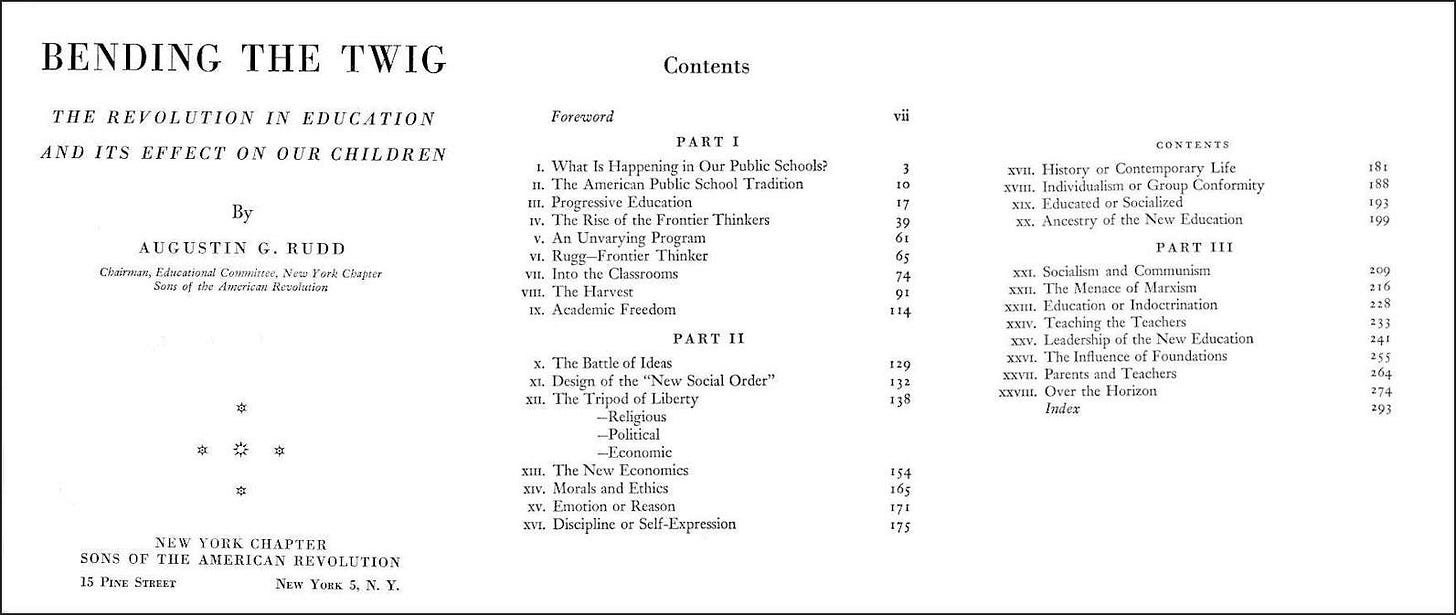



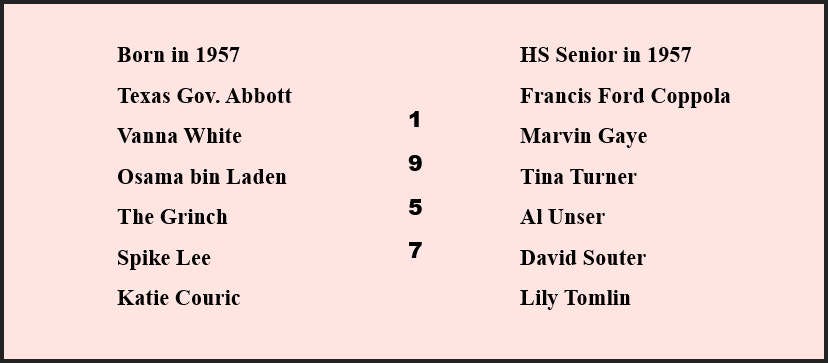
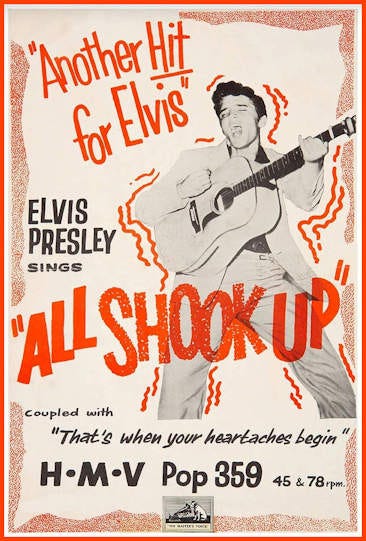


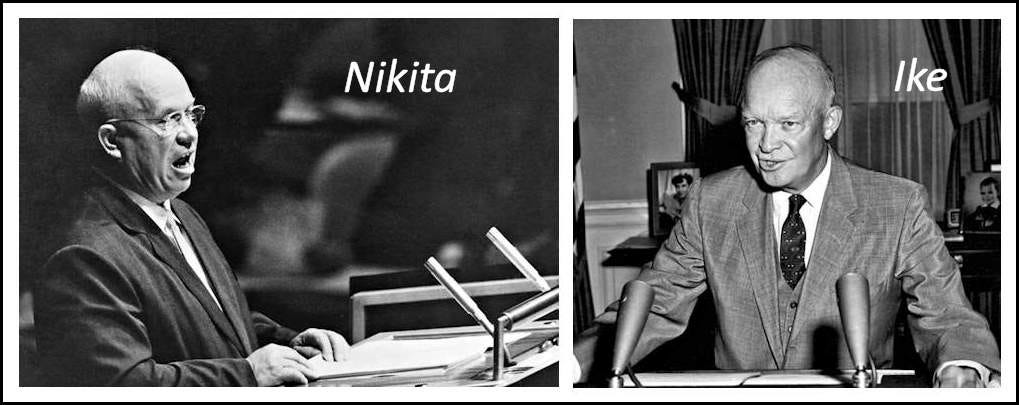




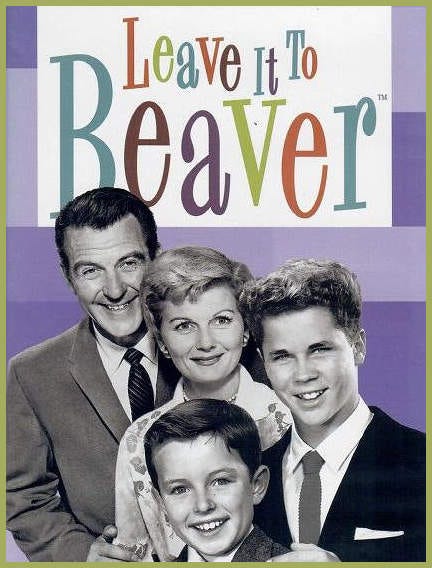





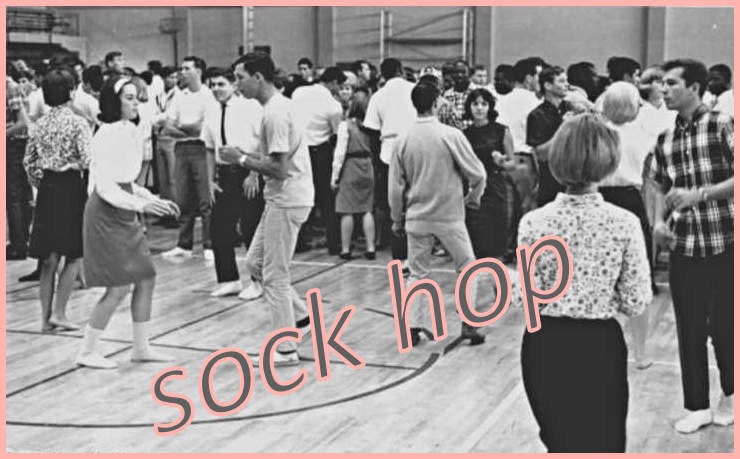
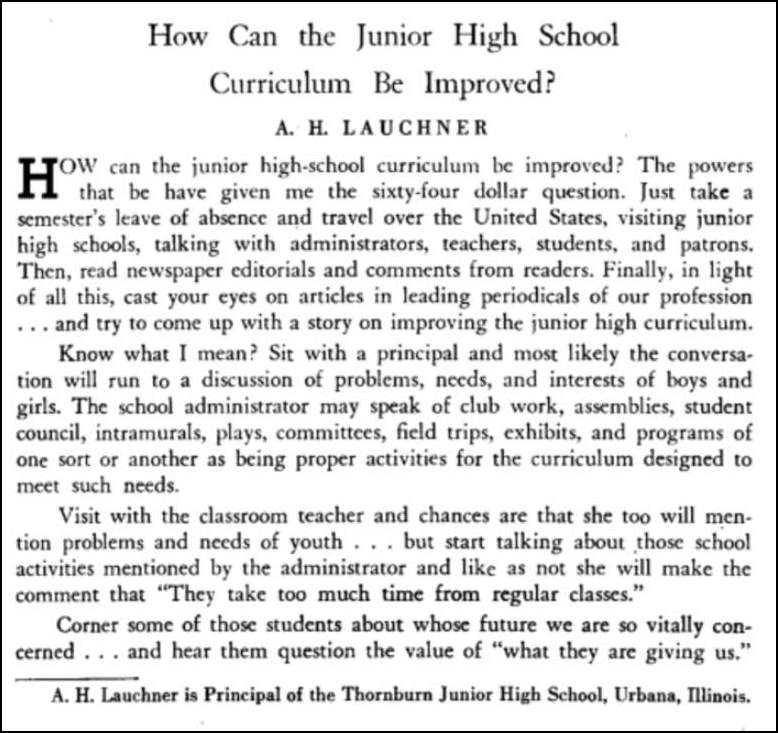

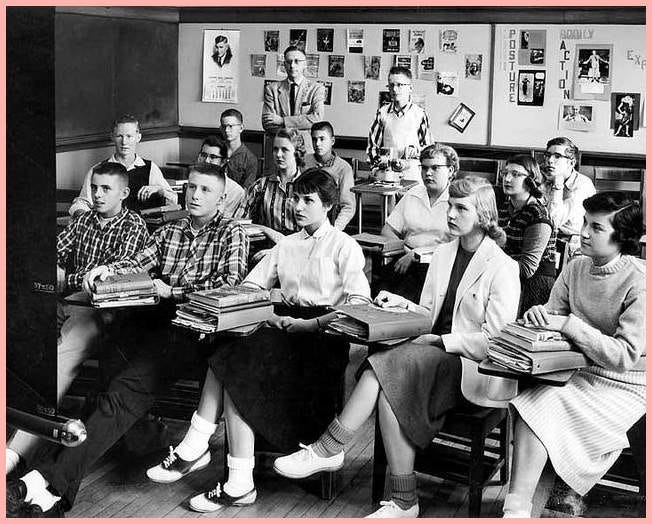
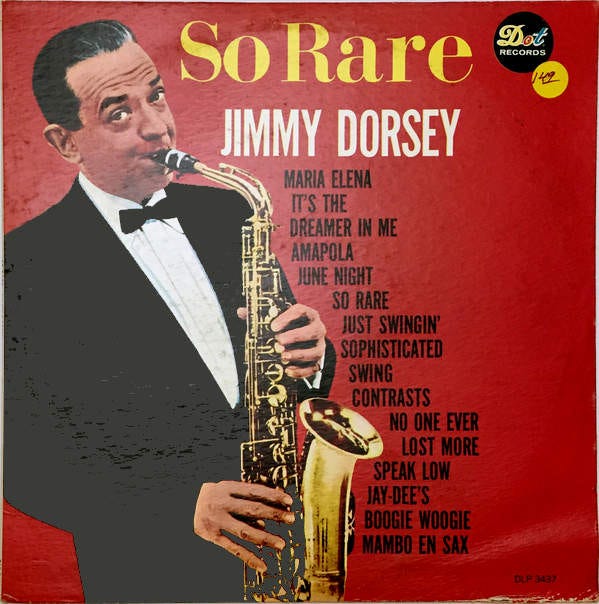
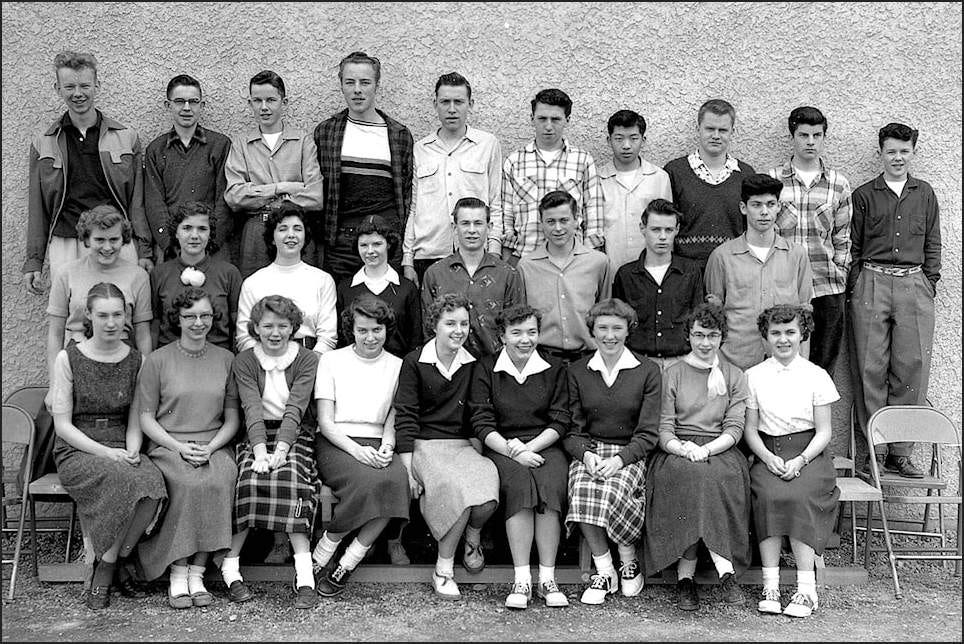







I was born in 1957. I spent My first three years in a private school, where I learned reading and writing in kindergarten, Spanish, addition and subtraction... When I went into the 3rd grade, I was aghast to discover that People were just learning what I had learned a year or more before. I was so bored that I paid zero attention and that became My habit in school. They would bring something new, and then spend a week or two going over and over what I grasped the first time though.
Needless to say... I hated school. LOL!
Great post. I will comment more thoroughly in an email. Best